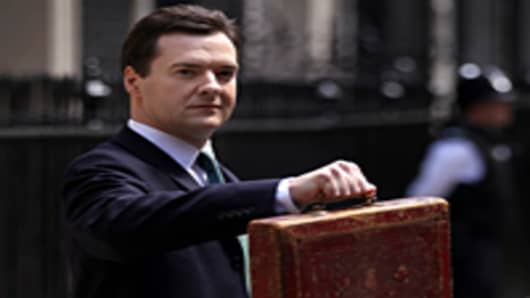George Osborne will on Monday vow to break the dominance of the City in the British economy, as he seeks to balance tough rhetoric on the deficit with the need to sustain future growth in all parts of the UK.
The chancellor will tell the Conservative conference that he does not want “growth confined to one corner of our country or one sector of our economy”, adding that Britain should never again hitch “its entire fortunes to the City of London”.
Mr Osborne will tell Tory activists that investment in high-speed rail, green technologies and medical research will be among areas spared from the £83 billion ($131 billion) purge on public spending.
Having prepared Britain for the biggest program of cuts in a generation, both Mr Osborne and David Cameron, prime minister, now hope to use the conference to project a more upbeat economic vision. Mr Cameron led the way in a pre-conference interview with the News of the World, in which he said: “Let’s put these cuts into perspective. Many businesses have had to make far greater reductions than us in one year.”
But privately ministers know the pain may be intense. “Some horrific things will happen, things will go wrong. That’s why the coalition is committed to seeing this through. It’s a five-year process,” one said.
Key to the coalition’s growth strategy is the high-speed rail line from London to the north, whose “Y-shaped” route – linking London with Manchester and Leeds – will be announced on Monday by Philip Hammond, transport secretary. Laws will be moved in this parliament with a view to completing the first stage of the London-Birmingham link by 2025.
Mr Osborne’s promise to invest in medical research, carbon capture and storage and to create a green investment bank will be criticised as too modest by Labour, which argues that his policies risk decimating regions dependent on public spending. However, the chancellor will argue that deficit reduction will help to keep interest rates low, while progressive cuts in corporation tax will underpin efforts to make the country more competitive.
With the October 20 deadline for settling departmental spending cuts looming, Mr Cameron is anxious the issue should not dominate the conference and on Sunday hailed the coalition’s “radical” plans to overhaul the welfare system.
Meanwhile William Hague, foreign secretary, told the Financial Times that he would defend Britain’s embassy network and the BBC World Service from the worst of the cuts. He also insisted the UK would be able to “pack a punch”, even after controversial defence cuts.


